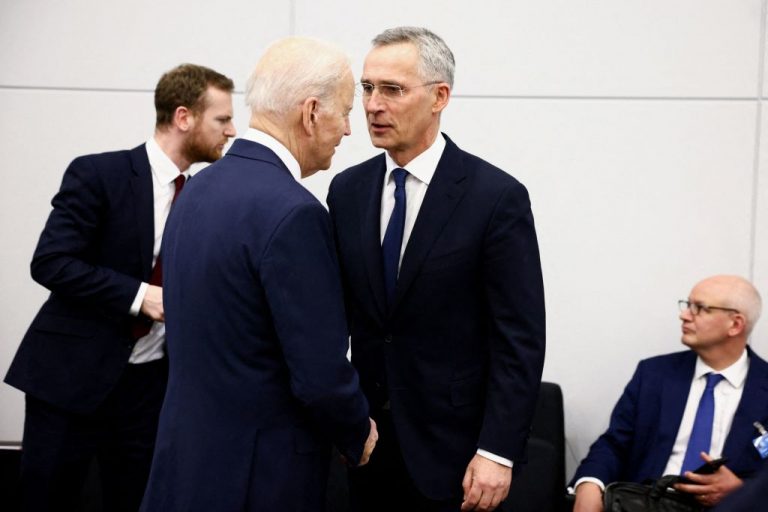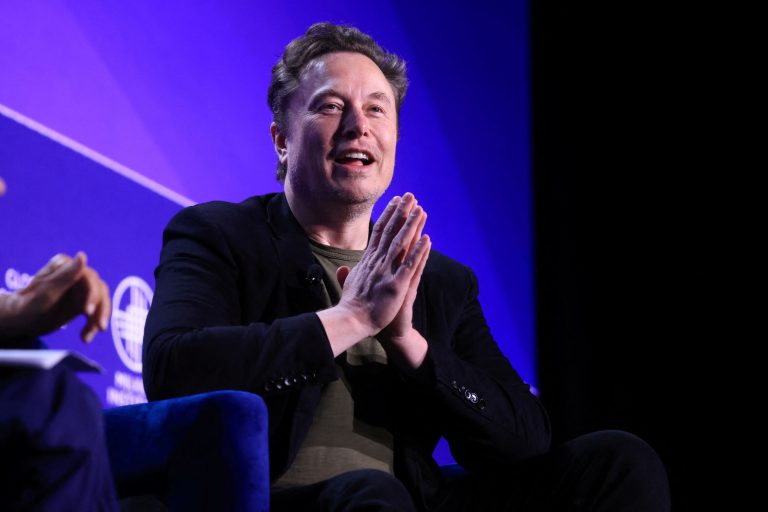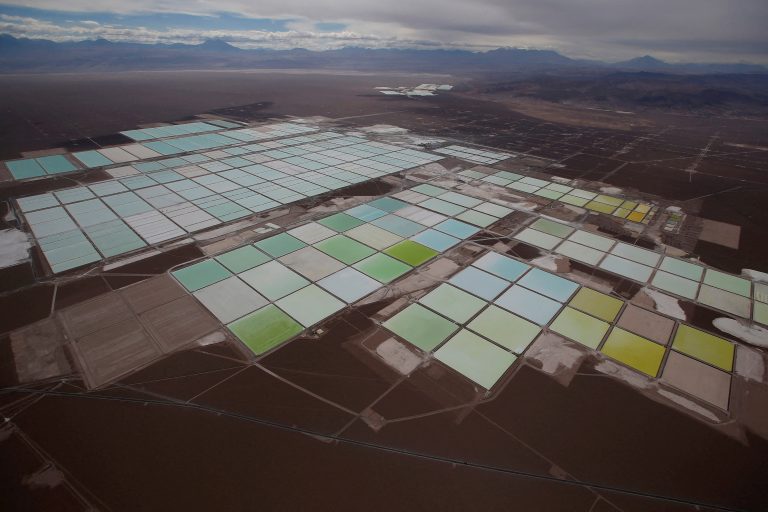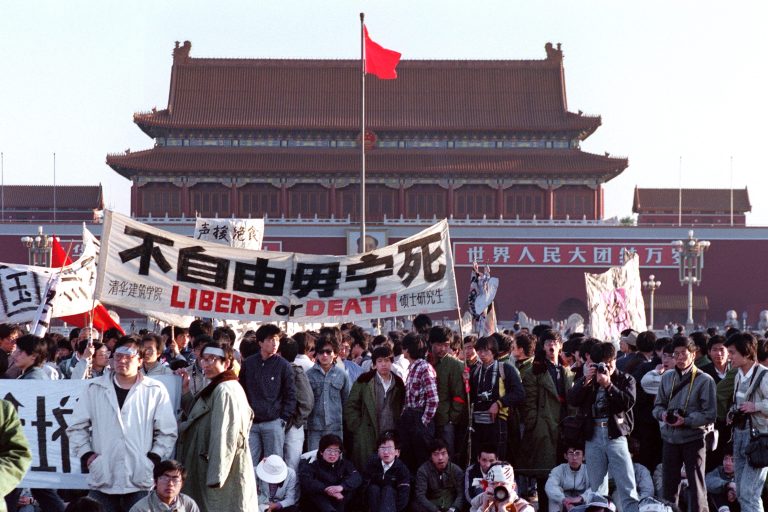News Analysis
While for North Americans, today’s world still appears stable, geopolitical tensions are at a dangerous high. The Ukraine war, and the resulting cascade of sanctions and cancel culture against Russia accompanying the conflict, appears to have not only fractured any hopes for the establishment of a unified, unipolar world, but simultaneously isolated Xi Jinping’s People’s Republic of China (PRC).
Facing denouncement from the member states of the unofficial, but oft-referenced international rules-based order (IRBO), the Russian Federation and President Vladimir Putin have been pushed even further into the perilous arms of a neighboring Eastern superpower still cloaked in the governance of the same Communist Party exorcized from the USSR in 1991.
The alliance has put Xi’s leadership squarely in the crosshairs of one of the largest power structures on the planet.
Drawing lines
As Russian banks have been severed from the SWIFT banking system, Visa and Mastercard have isolated Russian citizens and businesses from their infrastructure, and oil and gas imports have been suppressed by sanctions, Putin has been increasingly forced to turn to China for a lifeline.
Success
You are now signed up for our newsletter
Success
Check your email to complete sign up
Approximately three weeks before Russia invaded Ukraine, Moscow and Beijing issued a joint statement declaring “no limits” to their partnership while Xi and Putin met during the 2022 Beijing Winter Olympics.
The superpowers took aim at the AUKUS defense pact, an initiative between the United States, United Kingdom, and Australia to develop nuclear submarines, “plans” by the U.S. “to deploy intermediate-range and shorter-range ground-based missiles in the Asia-Pacific region and Europe,” and “domestic and foreign bioweapons activities” conducted by the “United States and its allies.”
Just days before the Ukraine conflict broke out, China’s support for Russia was made clear when Horizon News, a spinoff of Beijing News, a CCP-operated propaganda outlet, “accidentally” published “instructions” to the Party’s Internet and media censors, requiring outlets avoid painting Russia and Putin in an “unfavorable light.”
A pressure cooker
The situation has brought a great deal of pressure to the shoulders of current leader Xi Jinping.
During a formal March 18 conversation between Xi and Joe Biden, the U.S. president warned Xi of “implications and consequences” if the PRC continued to tacitly support the “unprovoked invasion of Ukraine.”
Just one day earlier, Secretary of State Antony Blinken postured that the United States “will not hesitate to impose costs” in response to “actions it [China] takes to support Russia’s aggression.”
The same day, Scott Kennedy, a member of foreign policy think tank Center for Strategic and International Studies told Reuters, “China is either going to side with Russia and reinforce the sense that it has joined an ‘axis of autocracy,’ or it is going to put significant space between Moscow and Beijing and demonstrate that it genuinely cares about preserving even a basic relationship with the rest of the world.”
Kennedy continued, “If it turns down this opportunity, it’s not clear to me there will be a next time to meet and set aside differences.”
On March 19, Boris Johnson joined the dogpile when he warned the current Chinese leadership of being on the “wrong side of history” regarding whether or not Xi would denounce Putin.
Nonetheless, Xi’s administration dug in its heels and held its ground.
On March 20, at the same time that Foreign Minister Wang Yi declared China is correct and on the “right side of history” in supporting Russia, Vice Minister Le Yucheng characterized the landslide of sanctions as “getting more and more outrageous.”
Le added, “The consequences of forcing a major power, especially a nuclear power, into a corner are even more unimaginable.”
The war of words was reminiscent of the infamous first meeting between Wang and Blinken in Anchorage in March of 2021, just weeks after the Biden administration took power.
During the session, a visibly irate Wang parlayed his two-minute window for opening remarks into a 20 minute tirade after Blinken emphasized the “rules-based international order” and touched on the issues of Hong Kong, Taiwan, and Xinjiang.
On March 28, the Department of Defense released its 2022 National Defense Strategy fact sheet, where perhaps surprisingly given the obvious geopolitical tensions, China was denoted as the DoD’s “most consequential strategic competitor and the pacing challenge.”
While “defending the homeland, paced to the growing multi-domain threat posed by the PRC” was positioned as the number one defense priority, by comparison, number three on the list was characterized simply as “the Russia challenge in Europe.”
A whistling kettle
A new glove was dropped in the tensions between the U.S. and its allies and the Xi-led PRC on April 5.
During a press conference by NATO Secretary General Jens Stoltenberg precluding a scheduled meeting of NATO Foreign Ministers on April 7 and 8 regarding the discovery of dead civilians in Ukraine’s Bucha after the Russian troop withdrawal, Stoltenberg took aim at China.
Half way through remarks, in comments regarding the scheduled appearance of Ukraine Foreign Minister Dmytro Kuleba on March 8 to “update us on the latest developments, including Kyiv’s negotiations with Moscow,” Stoltenberg name dropped a laundry list of participants, including Finland, Georgia, Sweden, and the EU.
The Secretary General then made a point of specifically noting that during the rendezvous, Kuleba would also “be joined by NATO’s Asia-Pacific partners” Australia, Japan, New Zealand and South Korea, “Because this crisis has global implications, which concerns us all.”
Stoltenberg immediately cut to the chase, “We see that China has been unwilling to condemn Russia’s aggression. And has joined Moscow in questioning the right of nations to choose their own path.”
“At a time when authoritarian powers are pushing back on the rules-based international order, it is even more important for democracies to stand together, and protect our values.”
The Secretary General issued a call to action where he stated, “I expect we will agree to deepen NATO’s cooperation” with the Asia-Pacific partners in fields such as arms control and cyber warfare.
Only moments later, Stoltenberg added that discussions for NATO’s next Strategic Concept in June would also be undertaken during the session.
The pressure amplified, “For the first time, it will also need to take account of China’s growing influence and coercive policies on the global stage. Which pose a systemic challenge to our security, and to our democracies,” he stated.
Anti-Xi, not anti-CCP
Aficionados of the Western dream of freedom and democracy should take note, however, that all pressure being applied is, unfortunately, not directed at the communist regime occupying China.
Instead, time and time again, the IRBO and its constituents refer to China and Xi Jinping in place of more appropriately referencing the Chinese Communist Party (CCP) itself.
In fact, in certain cases, the Biden Administration has actually neutered existing anti-CCP legislation while whitewashing phrasing referring to the CCP or communism in general.
One prominent example is found in a June 3, 2021 Executive Order that not only released 16 companies associated with the People’s Liberation Army (PLA) — which is the CCP’s military wing — from a Pentagon blacklist, but sanitized 6 paragraphs of an executive order previously issued by Donald Trump.
Trump’s Order, which merely utilized phrasing in a legal framework already present since 1999, contained references to “Communist Chinese military companies.”
Biden’s rewrite sterilized not only the title of the EO and the title of the blacklist, but also the binding text so that it instead read “military-industrial complex of the People’s Republic of China (PRC).”
The root of the matter appears to be found in an issuance by major foreign policy think tank The Atlantic Council titled The Longer Telegram: Toward a New American China Strategy, which directly calls on the U.S. government to “put replacing Xi [Jinping] at the center of its China policy by leveraging splits in the CCP elite.”
An analysis of the work by China-focused political risk consultancy SinoInsider astutely notes that the missive does not wish for the disintegration of the CCP, instead, it directly calls to have “China return to its pre-2013 path—i.e., the pre-Xi strategic status quo.”
“The notion that there are ‘moderates’ or ‘reformers’ in the CCP elite is a misnomer since Party leaders differ only in their chosen approach to actualizing the Marxist-Leninist regime’s ultimate goal of world domination, as well as in their personal circumstances in the factional struggle,” the SinoInsider analysts wrote.
Fully in motion
The most recent piece broadcast by The Atlantic Council regarding Xi was March 15, and marks the first time the roundtable has mentioned Xi since the Ukraine conflict began.
Published in The Hill, Distinguished Fellow Hans Binnendijk and Senior Fellow Robert A. Manning penned an op-ed titled Advice for Xi Jinping On China’s Ukraine Choice, which cut directly to the chase as it stated “that more than any other nation, China is uniquely positioned to help end Russia’s catastrophic war in Ukraine.”
The 1,054 word piece, which references “China” ad nauseum to the tune of 36 repetitions, appears to offer Xi something of an olive branch:
“Indeed, Chinese President Xi Jinping was manipulated by Putin, much as Stalin played Mao leading to the Korean War in 1950. It appears that Beijing was shocked by the full-scale war, even more so by its brutality and, not least, by the swift, furious and unprecedented global economic and political response.”
The op-ed not-so-subtly puts Xi on notice that the West believes his power relies on the good graces of the IRBO, “No nation has benefited more from the existing international system than China, which is perhaps why China prizes stability and caution.”
The authors, apparently oblivious to the massive repression and murder carried out by the CCP throughout its history — including the persecution of Falun Gong’s 100 million adherents that began right as a “reformed” China was in full-swing engagement with the West, posit that the Party’s sins can be forgiven, but only if Xi could just do the right thing.
“Many in the U.S. think China’s immutable goal is to overturn the world order and that Beijing disdains accommodation. Others think that China mainly wants the power and influence accorded to its economic and strategic weight.”
Binnendijk and Manning state, “But China now has a rare opportunity to alter perceptions of China in the West.”
“Playing a strong role in resolving this crisis is an opportunity to prove that constructive, if competitive, coexistence is possible,” they claim. “Biden should make clear to Xi that decisive help in ending the war and reaching a sustainable resolution will open new possibilities for U.S.-China ties.”
An internal dogfight
Fundamentally, the battle Xi has faced since he took the reigns of China has been an internal one against a faction belonging to 95-year-old former regime boss Jiang Zemin, who has struggled to maintain control of the Party in order to cover up the genocide against practitioners of Falun Gong that he initiated on July 20, 1999, which persists to this day, though many of its most ardent perpetrators have been purged as allies of Jiang.
As Xi is occupied doing everything possible to ensure he wins an unprecedented third term as Chinese leader later this year, the factional struggle between Xi and the Jiang faction is now happening out in the open for Chinese readers to witness.
SinoInsider reported in February that a state-sponsored overseas media outlet published an extensive three part criticism dubbed An Objective Evaluation of Xi Jinping where the sitting general secretary was openly chastised on various fronts while Jiang and cohorts swept out in Xi’s anti-corruption campaign, such as the infamous Bo Xilai, were praised.
In the process, the diatribe revealed its authors actually take an analogous stance to The Atlantic Council’s The Longer Telegram.
“2022 will be the biggest turning point for [Xi Jinping]. Even if he manages to stay in power by some magic trick, he’ll face a thorny road ahead and complete collapse by 2027,” reads a translation.
It continues, “The CCP will not wage a cold war with the world for Xi’s benefit; if he insists on destroying the common good, he will eventually offend everyone. It would be dangerous for Xi at this juncture because people will adopt an ‘anti-Xi, not anti-CCP’ [反習不反共] strategy.”







